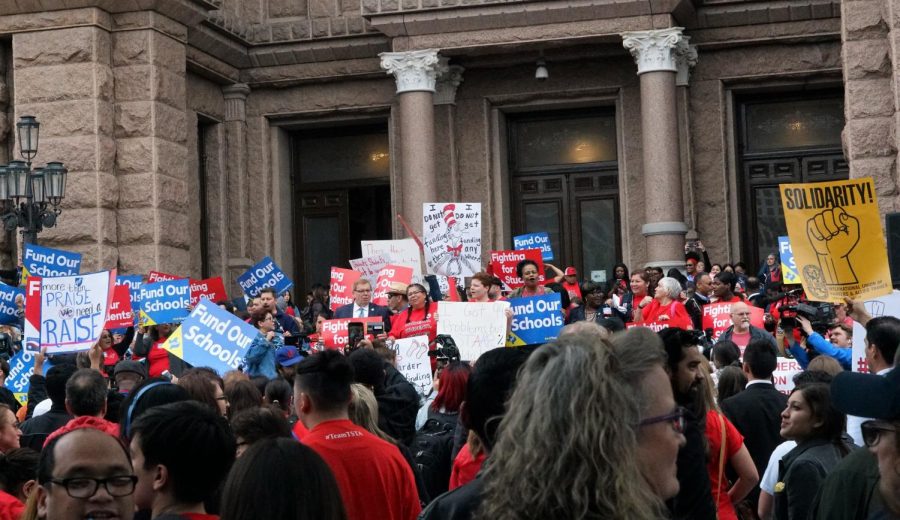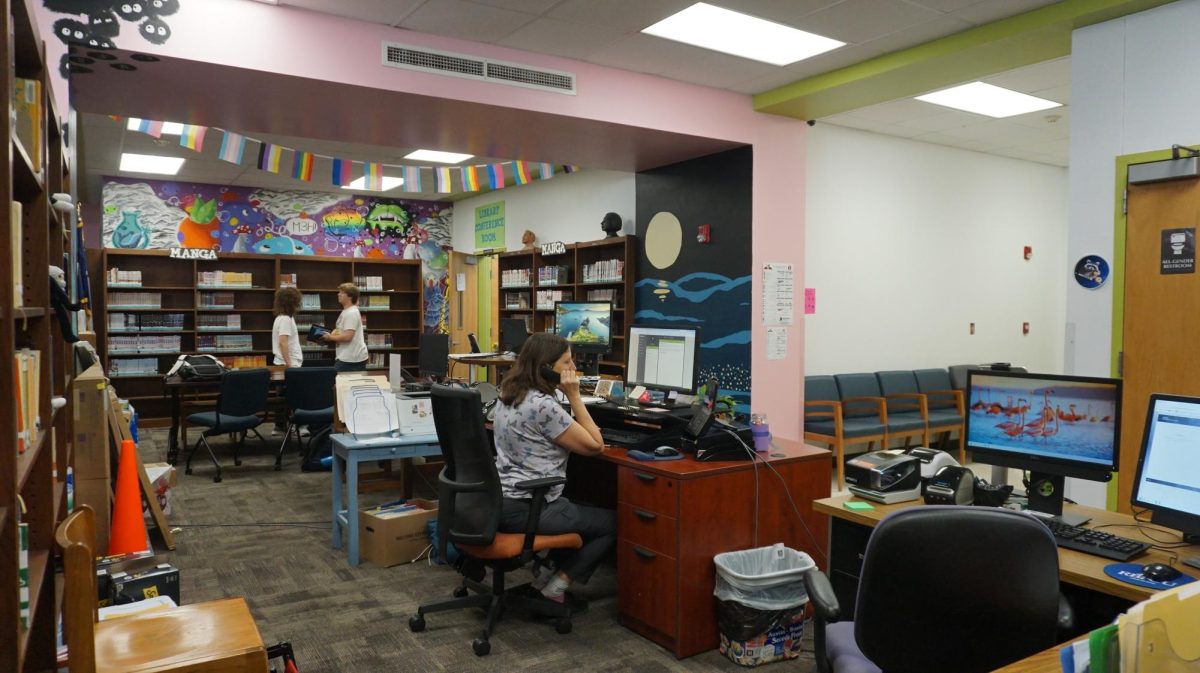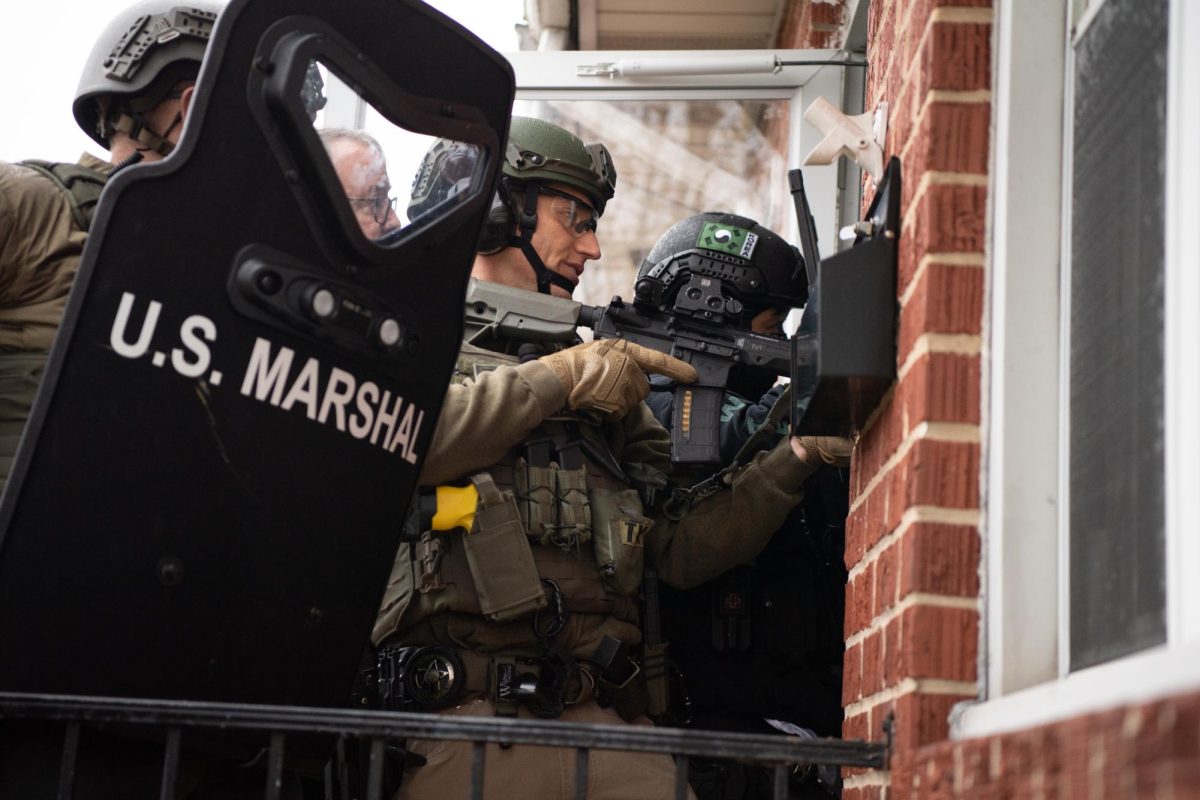Hundreds of teachers and public education supporters rallied on a Monday at the State Capitol building. The crowd grew larger every minute as more joined in the Red-for-Ed rally, which reached Austin on March 11. Buses gathered around the Capitol, carrying with them teachers and students from as close as neighboring Austin ISD schools to as far as hundreds of miles away.
State officials have made public school finance the priority of this legislative session in Texas, and educators said that they want to emphasize that real-school finance reform begins with a significant increase in public education funding.
The legislative Budget Board has determined that at present, the state pays for only 38 percent of the Foundation School Program–the basic school finance plan–while local property taxpayers pay 62 percent. Adjusted for inflation, per-pupil spending in Texas has dropped by 20 percent since 2008, which is the largest drop of any state during that period, according to a study by the Center on Budget and Policy Priorities.
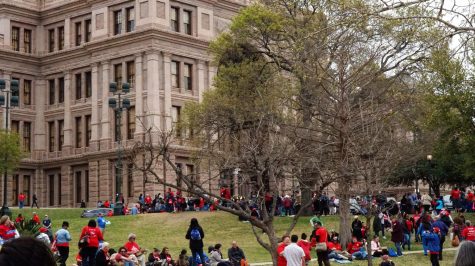
Lunch At The Capitol: While rallying, teachers from all around the state gathered for lunch in various places around the Capitol, listening to each other’s stories and reasons for being at the march, taking photos and eating with their new friends.
The event kicked off at 11 a.m. with a series of speeches then moved to lunch and a second rally that afternoon at 1:45 p.m. Everyone down at the Capitol had just one thing on their minds: future students simply needed better-funded teachers and custodians.
There were also precursor events, like a band playing on the Capitol’s front steps, and carpools with fellow teachers. Meanwhile, within the walls of the Capitol, reporters gathered in the Speaker’s Committee Room with the leaders and speakers that would be primary voices at the rally throughout the day. Speakers included Harlandale ISD bilingual teacher Aissa Velazquez, president of the Texas American Federation of Teachers Louis Malfaro and president of the Texas State Teachers Association Noel Candelaria.
In the morning, they spoke to cameras, not people in order to reach those who could not make it to the rally in person that day. Afterward, when the bustle and band quieted down, educators and presidents alike took the spotlight and set the stage for their ralliers.
Everybody cheered as Candelaria and Malfaro, among others, took the stage. They all collectively spoke in protest of the average Texan teacher salary of $53,000, which is $7,300 lower than the national average. They expressed their concern about the $5,000 pay raise that will be afforded only to teachers and librarians if the bill is passed as currently written. Speakers vehemently pled with legislators to expand the scope of the raise to include all staff workers and custodians because, as they pointed out, all employees work together for students.
Furthermore, everyone at the rally expressed opposition to the system of “merit pay,” which changes teacher and staff pay to be based off a system that considers factors like test scores and student attendance. Finally, they were advocating the use of the Texas Rainy Day Fund, a emergency fund that attendees believed should be dipped into to address current critical issues.
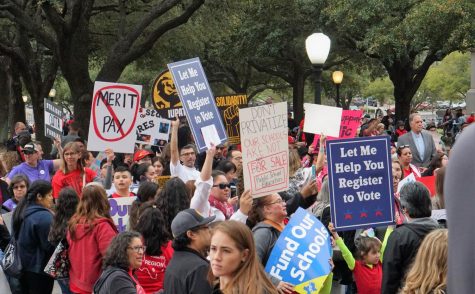
Posters for Protest: Staff members, teachers and students stand with one another, waving cleverly made signs to show just how much they want higher pay for those working in schools, showcasing specific aspects of existing issues and how they should be changed.
“Millions of the country’s public schools kids are educated in Texas, and by next year, this state is expected to have $15 billion in rainy day funds available to invest in public schools,” Weingarten said. “Ask any educator or any parents what $15 billion could mean for kids, for teachers and for schools, and they’ll tell you it means: safe, welcoming, high-quality public schools for every kid in Texas, not just some. It means holding charter schools accountable when they don’t meet the needs of kids. It means art, music and language programs, school counselors and nurses, new textbooks and salaries for educators that mean they don’t have to work two and three jobs.”
He added that legislative accountability is essential when it comes to school reform.
“Here in Texas and everywhere around the country, we want our public schools to be at the center of our communities; we want our teachers to be able to teach,” Weingarten said. “We want our elected leaders to fund our future, and to mean it when they say they want to invest in our kids. And we’re going to hold them to it.”
Teacher pay was a central topic to those in attendance. Most non-teacher staff members, like Sybil Hunter, who works in Houston ISD, are only paid on actual school days and cannot find other jobs during the summer to pay needed expenses such as bills and groceries.
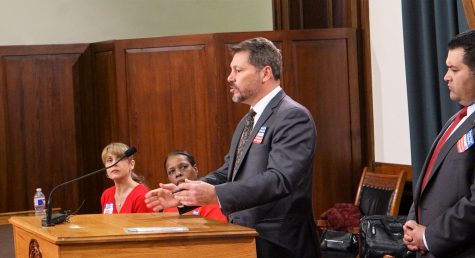
Hunter said that as a result they are often left stuck and dependent on other family members or friends to aid them, if they weren’t doing that in the first place, what with the already low-pay they get.
Hunter said that some legislators also are ignoring the important role played by all school employees, not just educators.
“It takes a team to educate our kids, so to promote pay raises just for teachers doesn’t recognize the hard work of bus drivers, counselors, nurses, teacher aides and all the other folks who are critical in making sure our students succeed,” she said. “My co-workers and I struggle with wages that are nowhere near what it takes to survive in Houston, and yet we don’t ever get the support and recognition we need to keep giving it our all every day in schools.”
According to the Brookings Institute, as many of 40 percent teacher in Texas work second or even third jobs n order to feed their families and make enough money to live, especially in the bigger cities. The poor pay also dissuades qualified teachers from choosing or remaining to be teachers.
Traci Dunlap, an Austin ISD kindergarten teacher, has had to get a second job in the past in order to work as a teacher and is once again considering it due to the low pay.
Dunlap also reminded legislators that misuse of standardized testing is yet another issue that should be addressed because it erodes the values of the teaching profession and the ability of kids to think both critically and creatively. Instead of actually teaching them how to be successful, she said, she spends her time preparing them for future tests.
“I’m not even teaching a grade tested by STAAR, yet I’m spending the majority of my time assessing students with tests and even prepping them for the standardized tests to come,” she said. “My colleagues and I also face the prospect of being paid according to how well our students perform on the STAAR test, which isn’t designed to evaluate teachers. We need a real pay raise, not merit pay.”
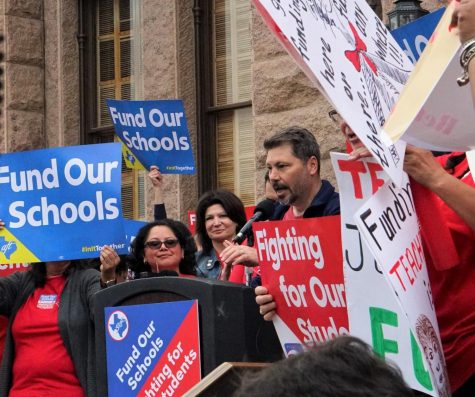
PRESIDENT ON PEDESTAL: Texas Amercan Fedederation of Teachers President Louis Malfaro stands upon the pedestal outside the Texas Capitol, speaking into the microphone. American Federation of Teachers president Randi Weingarten to his immediate right.
Those at the rally were very respectful of speaker Aissa A. Velazquez, a Harlandale ISD bilingual teacher, and her personal story. She said her poor salary has made her school health insurance unaffordable for her and her family, forcing them to deal with several medical hardships.
“My health insurance plan was so expensive and coverage was very little, to the point where we dropped it,” she said. “Even with insurance, our family always faced bills in the mail because of the high deductible. Our premium kept rising, year after year, and the higher it went, the less our policy covered. Our family was facing a monthly premium of $1,400 and a $5,000 deductible. We were being robbed. Now, we are saving that $1,400 a month in our own family health savings account, and we are hopeful in the Lord that all will continue to go well for us.”
After all of the speakers were done stressing the significance of the Rainy Day Fund and its usage in helping public educators and their staff all across the state, the rally was over, and those attending had an hour to break and get inside the Capitol, which proved no easy task.
At around 1:45 pm, inside the Capitol’s rotunda, Malfaro and Candelaria led the avid supporters who were crowding the rotunda with various songs and chants that advocated change with school funding and helping Texan children grow up with the resources they need.
It was a breathtaking sight (and sound), with over 200 people all singing in unison. Everyone had lost their voices by the time it was done, and with that, the rally was over for most at the Capitol.


